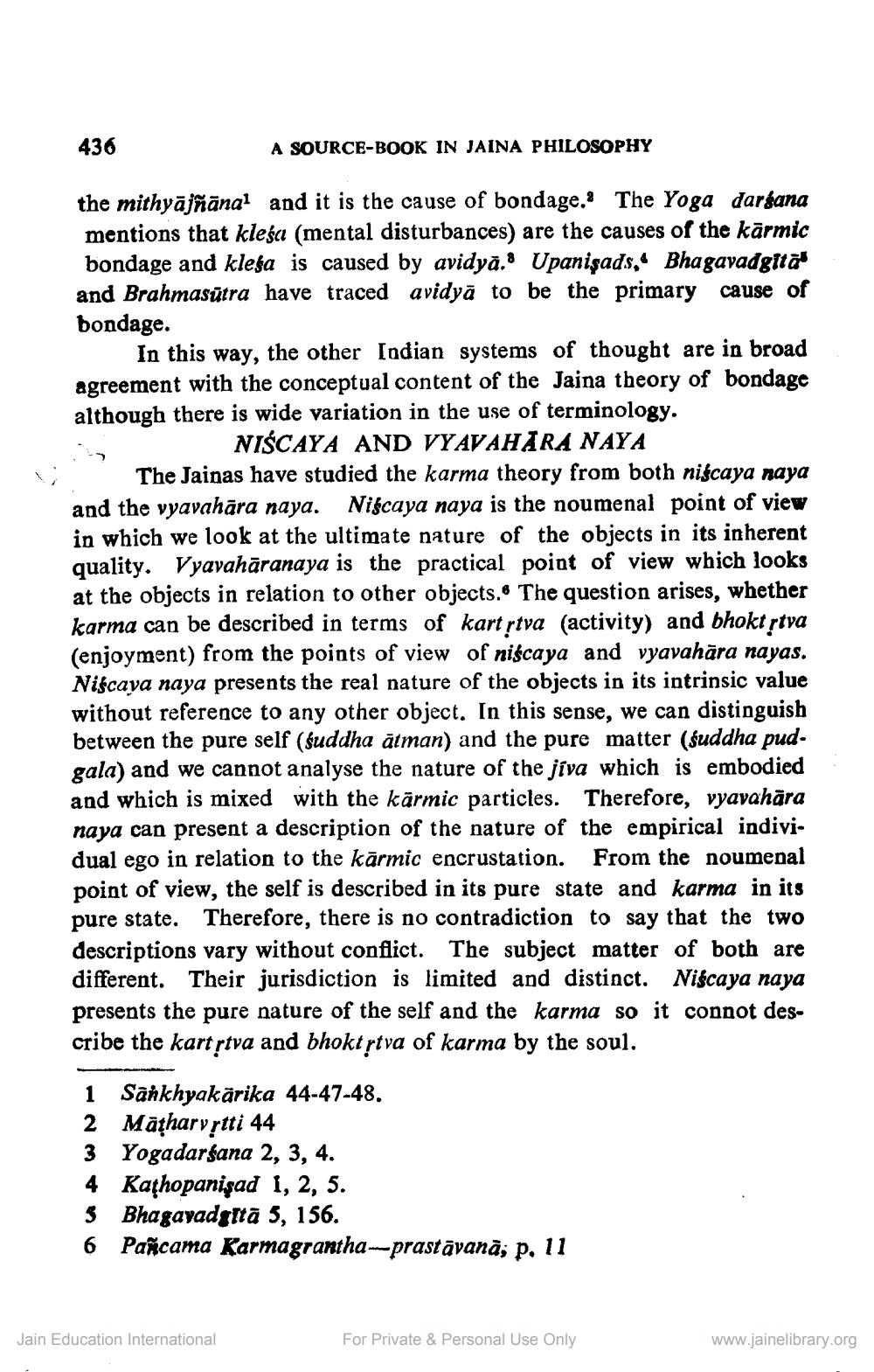________________
436
A SOURCE-BOOK IN JAINA PHILOSOPHY
the mithyājñānal and it is the cause of bondage. The Yoga darsana mentions that kleścı (mental disturbances) are the causes of the kārmic bondage and klesa is caused by avidyā.8 Upanişads, Bhagavadgital and Brahmasūtra have traced avidyā to be the primary cause of bondage.
In this way, the other Indian systems of thought are in broad agreement with the conceptual content of the Jaina theory of bondage although there is wide variation in the use of terminology.
NIŚCAYA AND VYAVAHĀRA NAYA The Jainas have studied the karma theory from both niscaya naya and the vyavahāra naya. Niscaya naya is the noumenal point of view in which we look at the ultimate nature of the objects in its inherent quality. Vyavahāranaya is the practical point of view which looks at the objects in relation to other objects. The question arises, whether karma can be described in terms of kart rtva (activity) and bhokt stva (enjoyment) from the points of view of niscaya and vyavahāra nayas. Niscaya naya presents the real nature of the objects in its intrinsic value without reference to any other object. In this sense, we can distinguish between the pure self (suddha ātman) and the pure matter (suddha pud. gala) and we cannot analyse the nature of the jíva which is embodied and which is mixed with the kārmic particles. Therefore, vyavahāra naya can present a description of the nature of the empirical indivi. dual ego in relation to the kārmic encrustation. From the noumenal point of view, the self is described in its pure state and karma in its pure state. Therefore, there is no contradiction to say that the two descriptions vary without conflict. The subject matter of both are different. Their jurisdiction is limited and distinct. Niscaya naya presents the pure nature of the self and the karma so it connot describe the kart stva and bhokt rtva of karma by the soul.
1 Sähkhyakärika 44-47-48. 2 Mātharvrtti 44 3 Yogadarśana 2, 3, 4. 4 Kathopanişad 1, 2, 5. 3 Bhagavadgitā 5, 156. 6 Pañcama Karmagrantha--prastāvanā; p. 11
Jain Education International
For Private & Personal Use Only
www.jainelibrary.org




